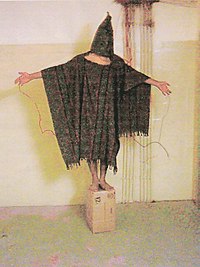
Photo from wikipedia
them, and be able to frame matters in rights terms (pp. 24– 28). Under these conditions, as well as additional factors highlighted in each empirical chapter, Michel argues that the… Click to show full abstract
them, and be able to frame matters in rights terms (pp. 24– 28). Under these conditions, as well as additional factors highlighted in each empirical chapter, Michel argues that the right to private prosecution offers victims a powerful tool to enhance state responsiveness and accountability (p. 8). The book begins with an overview (the introduction) that Michel might have used to better situate the work in the (admittedly scant) literature on the access to justice and litigation. Chapter 1 examines the role private prosecution plays as an accountability tool, and chapter 2 traces the right’s diffusion across the Latin American region. Chapters 3–5 offer empirical, chronological analyses of the evolution of private prosecution in Guatemala, Chile, and Mexico, respectively; this organization makes more difficult the systematic cross-national comparison that is at least one goal of the book. The book’s very brief conclusion is followed by a series of appendices and a useful glossary. As Michel rightly notes, this terrific book breaks new ground by investigating, highlighting, and elevating exceptions to the “typical” situation of impunity—one that both reflects and exacerbates inequality, ineffective democratic institutions, and a weak rule of law. At the heart of her analysis are critical questions of citizenship and inclusion: providing citizens with tools to challenge prosecutorial discretion increases their ability to access justice and escape what Guillermo O’Donnell (On the State: Democratization and Some Conceptual Problems, 1993) has so evocatively referred to as “low-intensity citizenship.” The examples that Michel highlights are critically important in demonstrating that, in the face of prosecutorial failure, “revictimization” (i.e., citizens suffering from impunity as well as from crime; pp. 2, 42) is not inevitable. In the majority of Latin American countries, exercising their right to private prosecution inserts victims as empowered actors into a process that usually does not include them. Importantly, in exercising that right, citizens are rejecting extra-institutional options and instead using the very institutional structures that failed them in order to challenge the state—relegitimizing, validating, and strengthening it in the process (p. 17). The book thus illuminates the conditions under which institutional failure can lead to institutional fortification, and in particular how marginalized citizens—unexpected protagonists—can contribute to that outcome.
Journal Title: Perspectives on Politics
Year Published: 2020
Link to full text (if available)
Share on Social Media: Sign Up to like & get
recommendations!